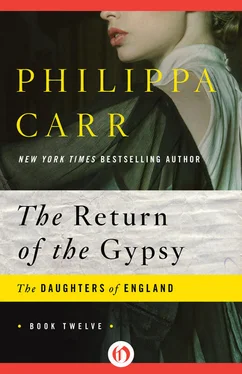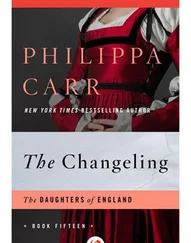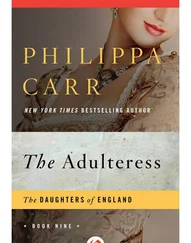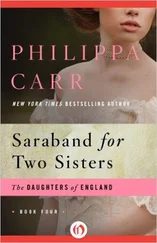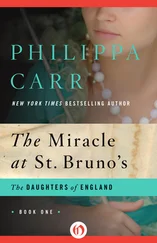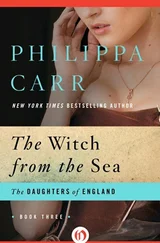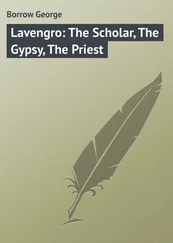Philippa Carr
The Return of the Gypsy
I BELIEVE THAT VERY few people who lived through that summer and early autumn of the year 1805 will ever forget it. Throughout the entire country was a feeling of dread of what might be our fate, which was only surpassed by a determination to prevent it. We were a nation preparing for invasion from the most formidable foe any country had ever had to face since the days of Attila the Hun. The Corsican adventurer, Napoleon Bonaparte, had shown the world that he was determined on conquest, and, having subdued the greater part of Europe, was now turning his attention to our island.
His name was on everybody’s lips; any little rumour about him was magnified and passed around; he was generally known as Boney, for nothing is such an antidote to fear as contempt—even if it is assumed—and he was slightingly referred to as The Little Corporal; but the most ominous warning a mother could give to a naughty child was: “If you are not good, Boney will get you”—as though Boney was the devil himself. Boney was the bogey-man and there could have been few in England at that time who did not contemplate his coming to our land with considerable apprehension.
Bands were formed all over the country; weapons were collected and hidden. We looked at the sea which lapped our shores, and whether it was calm and blue, or lashing our beaches in a grey fury, we thanked God for it. It was our great ally because it separated us from that mass of land over which the Emperor Napoleon’s battalions had ranged and where, it seemed, none could deter him.
Enemies became allies in the only cause that mattered. We were all one great family, determined to maintain our independence. We were no little European state to be lightly overrun. Until now we had ruled the seas—and we were going to carry on doing so. We were—we hoped—impregnable in our little island, and thus we were going to remain.
There was talk of little else in our household, and we would sit over meals listening to my father discussing the state of affairs. My father was very much the head of our household. He was the patriarch, the master of us all, one felt. There were only two in the family who knew how to soften him; my mother was one; I was the other.
He was quite old at that time—sixty in fact—for my mother was his second wife, and although they had been in love with each other in their youth, there had been a previous marriage for both of them. My mother already had a grown-up son and daughter by her first marriage—and I was the result of that long delayed union.
This made complicated relationships in our family. For instance, my constant companion, Amaryllis, who had been brought up in the nursery with me, and who was only a month younger than I, was in fact my niece; her mother, Claudine, being my mother’s daughter by her first marriage.
I always felt this gave me a certain superiority over Amaryllis—one month’s superiority plus the fact that I was her aunt.
I used to call her Niece sometimes until Miss Rennie, our governess, told me not to be ridiculous.
“But it is a fact,” I would insist.
“There is no need to stress it,” retorted Miss Rennie. “You are both little girls, and there is scarcely any difference in your ages at all.”
I was not such a pleasant little girl as Amaryllis was. She was fair, with a face rather like the angels of the coloured pictures in our Bible. I sometimes expected to see a halo spring up about her curly head. She was pretty in a fragile way, with blue eyes and long fair lashes, a little heart-shaped face, and hair that curled about her head—hyacinthine locks, someone once called them and the description fitted.
She was very kind and loved animals; her mother, my half sister, Claudine, doted on her, and so did David, her father, who was my father’s son. The relationship seemed more and more complicated whichever way one looked at it. But we were a very close family and few in it were closer than Amaryllis and myself.
We were in the schoolroom together; we had our ponies on the same day; we learned to ride under the tuition of the same riding master; we shared a governess; we were as sisters. But although we were related and scarcely ever out of each other’s presence, we were not in the least alike in looks and temperament
I was very dark—with almost black hair and dark brown eyes, heavy dark brows and lashes. In our family there were very dark-haired and very fair-haired women. The picture gallery bore witness to this. Some of the dark-haired ones had blue eyes, which was a very attractive combination. My ancestress Carlotta and my mother were two of these. They were the dramatic ones, the ones who struck out from conventions when they wanted to. I was one of that kind. Then there were the gentle ones with their pleasant good faces. They were quite a contrast to the dark side of the family.
Amaryllis and I seemed to fit quite neatly into these categories. We were surrounded by love. Amaryllis was the sort of daughter most parents would have chosen had they been given a choice; but I believe my father and mother preferred me as I was. They knew that I might be a little rebellious, that I might act in an unpredictable manner. My mother might have been like that once. As for my father, he had always been bold and determined to get his own way, so he would want a daughter who was a little like himself.
That Amaryllis and I were the best of friends was largely due to her unselfish and forbearing nature. When I seized the more exciting toy or demanded more than my fair share of the rocking horse, she had merely stood aside. It was not that she had no spirit. I was sure that, in a good cause, she would have had a good deal. Perhaps she was wise and from an early age saw the futility of screaming for something which was after all not worth the effort; perhaps she was far sighted enough to realize that after I had taken the prize from her, it had already lost its value because she did not want it as desperately as I had done.
Well, whatever it was, Amaryllis was Amaryllis and I was Jessica, and the two of us were as different as two children brought up together and sharing a nursery and schoolroom could be.
I suppose my parents were not conventional, Dickon, my father, in particular. He made the rules his way and in our household they were law.
When we were eight years old he decreed that we were too old to eat in the nursery with Miss Rennie and we joined out parents at table.
“I like to see the family assembled,” said my father
Our parents encouraged us to talk and listened to our opinions. I was a great talker, egged on by my father who would sit back watching me with his mouth moving almost involuntarily as though he were trying to stop himself laughing. He would argue with me, trying to trip me up, and I always plunged in, stating my views without considering whether they were his or not, for I knew that the more I disagreed with him the more he liked it.
My mother would sit enraptured, her eyes on us both.
And it was the same with Amaryllis; her parents were as proud of her as mine were of me. I could imagine them in their bedrooms alone at night and I could hear my father’s comment: “Amaryllis hasn’t our Jessica’s spirit. I’m glad we have a girl like that.” And in that other bedroom: “What a difference in the two of them! I’m glad Amaryllis is not so forward. Jessica can be almost insolent at times.”
But most important to me, we both had love, the most important thing a child can have.
It was alarming to think that an alien force might intrude on our cosy way of life. My parents were aware of the threat and so, as I have said, was the whole of England. Patriotism flourished. It is only when people are afraid of losing something that they realize how precious it is.
Читать дальше
